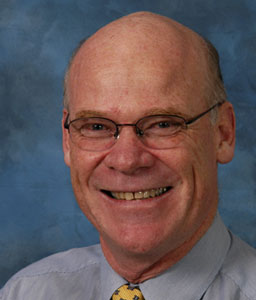CeRRF's up
Research news
Deakin University has created a new centre for innovation with the aim of enhancing regional competitiveness and increase agricultural productivity in Australia in a collaborative and sustainable way, while helping feed a hungry world.
The Centre for Regional and Rural Futures (CeRRF) formally began operations in August, 2013 and is headed up by Professor Andrew Parratt.
“About one in eight people in the world go hungry every day,” Professor Parratt said.
“CeRRF can play a leading role in helping to reduce that number, as well as helping Australia play a prominent and profitable part in addressing the problems of feeding an ever-growing world population.
“To keep pace with expected global population increases and the rising demand for more diverse and better quality food in diets as people move out of poverty, food production will have to rise by 60% by 2050.
“The middle class in Asia is forecast to grow from 500 million to three billion consumers over the coming decades.
“Although Australia has almost 20 times more arable land per capita than China, India and Indonesia and produces more food than it needs, it will need to double food production to meet the 2050 target.”
Agriculture is a proven initial driver of economic development leading to food self-sufficiency in most developing countries. GDP growth generated by agriculture is up to four times more effective in reducing poverty than growth generated by other sectors.
But agriculture as a prime mover also created problems of its own.
“Agriculture is currently responsible for 70% of water use globally, as well as up to 30% of greenhouse gas emissions,” Professor Parratt said.
“As demand for food and thus farming is rapidly increasing with the growing populations, it is essential to not only increase agricultural productivity, but to ensure that the environmental impact of agriculture is minimal.
“It is equally important to adapt existing agricultural practices so they are able to withstand the extreme weather conditions climate change will bring.
“A new way of thinking and doing is required if we are to overcome these challenges.
“There is no doubt that an opportunity exists for Australia to improve regional and rural productivity and seize the opportunity of the Asia food boom through agriculture exports and the food value chain between now and 2050.”
Professor Parratt says Australia could triple its exports to feed 150 million people by bringing together rich natural resources, innovative research and development, smart investors and risk-taking farming and manufacturing entrepreneurs.
“Australia is well placed to make a contribution to improving food security, through the sharing of its expertise in innovative research,” Professor Parratt said.
“As a nation, we have built considerable scientific and technical expertise in agricultural productivity and trade.
“CeRRF is bringing together Australian and international researchers together to develop solutions to improve sustainable agricultural productivity and regional competitiveness.
“Our researchers with relevant expertise along with new research scholars possessing industry and academic experience will significantly impact in this niche of research education and innovation.
“This will be further strengthened by enduring and successful partnerships with policy makers, developing-country national research institutes and universities and international agricultural research institutes as well as global research programs.
“The Centre is unique in the Australian context as it will have the capability and capacity to address regional competitiveness and productivity problems with teams from engineering, science, business, economics and the humanities.
“The Centre will focus on bridging the gaps between regional enterprises, governments and academia.”
CeRRF will have its headquarters in the regional Victorian city of Geelong which is also the seat of the University.
However researchers from all of the University’s campuses will be part of the Centre, drawing on a diverse range of expertise while focussing on four core elements.
- Food and Food Security;
- Smart Agriculture;
- Sustainable Industrial Biotechnology; and
- Developing Regional Competitiveness.
Share this story
 CeRRF can play a leading role in helping to reduce number of people going without food each day, says Professor Andrew Parratt.
CeRRF can play a leading role in helping to reduce number of people going without food each day, says Professor Andrew Parratt.
